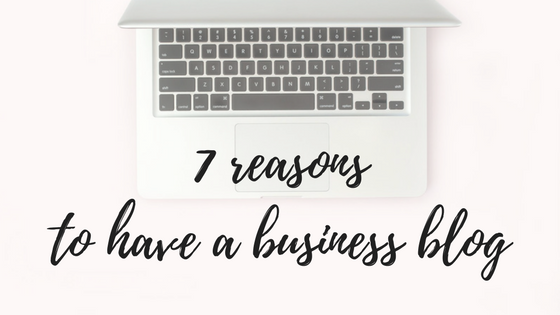Whether you’re a sole trader or a business owner with employees, knowing who to follow on social media can be a bit of a puzzle.
Do you follow your customers, or your competition, or your Great Aunt Eileen because she’s always asking how your business is going and she bought that one pair of socks from you two years ago?
What does ‘follow on social media as a business’ mean?
Following on social media as a business has a subtle difference to following an account on a personal basis. You’re not friending, so much as connecting. The way you ‘follow’ will vary depending on which social media platform you choose:
- On Facebook, you like or follow a brand page or join a brand group from your personal account or your own brand page. You can of course ‘friend’ another user, but this is an altogether more personal connection.
- On Twitter, you follow another account.
- On LinkedIn, you connect with another account holder/brand, or follow a business page.
- On Instagram, you follow another account.
- On YouTube, you subscribe to a channel.
- On Pinterest, you follow an account holder from your business account.
Of course, your choice of social media platform will depend largely on where your audience and customers are. There’s no sense in posting on a platform where nobody of interest will see you.
Who to follow on social media
This will partly depend on why you use a particular social media platform. Is it for inspiration? Is it to keep up with industry developments? Maybe you want to use it to keep in touch with your team, or yes, sell to your audience.
Once you’ve identified that (or ‘pinned’ it in the case of Pinterest – sorry), you might want to follow:
Your Team
If you work on your own, you might think, “Hang on, I don’t have a team”, but you’d be wrong. Your team is all the people who help you run your business. It might be:
- your accountant
- suppliers
- other freelancers who you’ve worked alongside or partner businesses
- the co-working space you use
- your graphic designer
- your VA
If you’re a business owner with employees, all of the above might apply to you too. What about the people that work for you though? You might still want to connect with them on social media but do check whether that seems appropriate. There are plenty of online business platforms you can use to communicate with your team instead, like Slack or the aptly named Microsoft Teams.
Brands in your Industry
You spend your day working for clients and on your business admin and planning. Where’s the time to keep up with developments in your industry? That’s where social media comes in handy, by allowing you to dip into what other brands in your industry are posting.
Following other businesses like yours is an ideal way to:
- keep up with new trends in your industry
- find out what your competitors are working on
- arm yourself in readiness for when your client wants the ‘new thing’ they’ve heard about
Moreover, it can be the compass you need to point you and your business in the right direction.
Brands in Complementary Industries
This may not be an obvious ‘follow’ but what about all those other industries that affect your own. Technology is always a good one to dip into because of the multitude of ways it may touch on your business, from website design, to apps, to vehicles, and so on.
What complementary industries affect your own? There are sure to be at least one or two that have a direct influence on how you run your business day-to-day.
Business Related Organisations
What do I mean by this? Business related organisations are those that support or inform the business world. The details will vary depending on the industry you work in, but they might include:
- your local chamber of commerce
- HMRC
- Federation of Small Businesses
- Confederation of British Industry
- Institute of Directors
- IPSE (Association of Independent Professionals and the Self Employed)
- your local business networking group
- online networking groups
Any of these may be the first to report the latest developments in your industry, the introduction of legislation that may affect your business, and local or national opportunities.
News Sites and Industry Publications
This is all about staying up-to-date so that you can react to developments in the news. National news sites can be incredibly helpful, but it’s worth following your local news sites too. Do remember though that you’re generally following these news sites for a business purpose. Certain sites won’t be that useful and may prove to be a rabbit hole that you disappear down for hours on end.
Similarly, follow relevant industry publications, such as onOffice (architecture and design), Farmers Guardian, and Nursery World (for children, not plants), or at least the ones that you regularly read.
Influencers
Who are the influencers in your arena – the experts and generally well-known faces whom people in your industry listen to? You may be an influencer yourself but it’s always worth keeping an eye on what other influencers are saying. They don’t have to be celebrities earning millions on YouTube or Instagram, but people do listen to them, trust them, and often emulate them.
Influencers often begin trends but more and more, they are a measure of the popularity of a trend. If X, Why and Zed influencers are praising the latest thing you can take a generally safe bet that their audiences are too.
Your Ideal Client (even if you’ll never work with them)
Most of us have a brand-crush, a client whom we dream about working with. Even where that dream is likely to remain just that, why not follow your ideal client? They’re ideal for a reason. They might:
- embody your values and beliefs
- create a product that you see as the best of the best
- take your breath away with the names they work with
Whatever the reason is, there’s no harm in following them for fun, inspiration, and a little kick of motivation to improve your own business. Who knows? They might follow you back.
*
If you’d like to follow me on social media or connect, you can find me in all these places:
*
If you found this article helpful, you might also like Top 3 Social Media Channels For Your Business.



